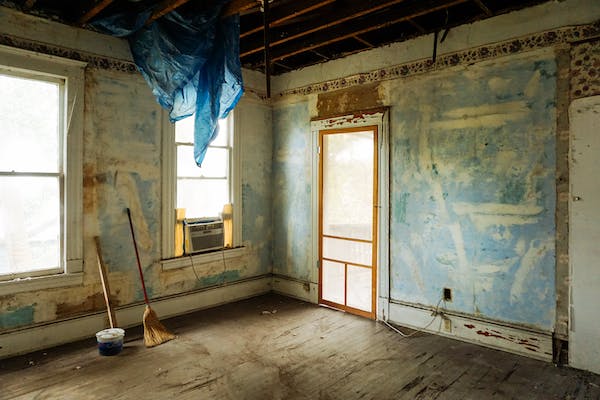10 Things to Consider Before Investing in Real Estate,
Are you considering investing in real estate but not sure where to start? Investing in property can be a great way to create passive income and build wealth over time. However, before jumping into the world of real estate, it's important to consider a few key factors that can make or break your investment success. In this blog post, we'll cover 10 things you should think about before making any major real estate investments. From researching the market to understanding financing options, these tips will help you make informed decisions and set yourself up for long-term financial gain. So grab a cup of coffee and get ready to learn how to invest wisely!
Introduction
There are many things to consider before investing in real estate. Here are a few of the most important factors to keep in mind:
1. Location: The location of the property is crucial when considering an investment. Look for areas that are growing or have potential for growth.
2. Condition of the property: It's important to inspect the condition of the property before making an offer. If there are significant repairs needed, it may not be worth the investment.
3. Financing options: Be sure to research all financing options before investing in real estate. There are many different loan programs available, so find one that best suits your needs.
4. Rental income potential: One of the main reasons to invest in real estate is for the potential rental income. Be sure to do your research and know what rent prices are in the area you're considering investing in.
5. Property taxes: Another important factor to consider is property taxes. These can vary greatly depending on the location of the property, so be sure to factor this into your budgeting.
Benefits of Investing in Real Estate
There are many benefits of investing in real estate. Perhaps the most obvious benefit is the potential for earning a return on your investment. With proper care and maintenance, real estate can appreciate in value over time, providing you with a tidy profit when you eventually sell.
Another benefit of investing in real estate is the stability it can provide. Unlike stocks and other investments that can be subject to wild swings in value, real estate tends to be much more stable. This makes it an ideal investment for those looking to preserve their capital.
Real estate can provide you with a steady stream of income if you choose to rent it out. This can help offset the cost of ownership and make your investment even more profitable over time.
Risks of Investing in Real Estate
Before investing in real estate, it is important to be aware of the risks involved.
There are a number of risks associated with investing in real estate, including:
1. The market may decline.
2. You may not be able to sell your property when you want to.
3. You may not be able to find tenants for your property.
4. You may have difficulty making mortgage payments if your property does not generate enough rental income.
Do Your Research
If you're thinking about investing in real estate, it's important to do your research first. There are a few things you should consider before making any decisions, including:
-Your financial goals: What are you hoping to achieve by investing in real estate? Are you looking to generate income, build equity, or both?
-The type of property: There are many different types of properties out there, from single family homes to multi-unit buildings. You'll need to decide which type of property is right for you and your goals.
-The location: Where the property is located will have a big impact on its value and rental potential. Do your homework on different areas before settling on one.
-Your budget: It's important to have a realistic budget in mind when buying an investment property. Remember to factor in all of the associated costs, such as repairs, maintenance, insurance, and taxes.
Understand the Market
Before investing in real estate, it's important to understand the market. This includes things like the current state of the housing market, interest rates, and other factors that can affect your investment.
It's also important to research the specific area or neighborhood you're interested in investing in. This will help you understand things like the average home price, rental rates, and other important information.
Once you have a good understanding of the market and the specific area you're interested in, you can start to look for potential properties. When searching for a property, be sure to consider things like the condition of the property, its location, and its potential for appreciation.
Find the Right Property
If you're thinking about investing in real estate, the first thing you need to do is find the right property. There are a lot of factors to consider when choosing a property, and you need to make sure you find one that fits your investment strategy.
Some things to consider when finding a property include:
Location: The location of the property is important for a number of reasons. You want to make sure it's in an area that will appreciate in value, and that it's in a good neighborhood. You also want to consider things like the local job market and schools in the area.
Size: The size of the property is also important. You need to make sure it's big enough to generate income, but not so big that it's difficult to manage.
Type of Property: There are many different types of properties out there, from single-family homes to apartment buildings. You need to decide what type of property you want to invest in based on your goals and objectives.
Condition: The condition of the property is another important consideration. You don't want to buy a fixer-upper unless you're prepared to put in the work required to fix it up. Otherwise, you'll be stuck with a money pit that bleeds cash instead of generates it.
Know Your Sources of Financing
Before you invest in real estate, it's important to understand the different sources of financing that are available to you. There are a number of different lenders out there, and each one has their own terms and conditions. It's important to shop around and compare rates before you decide on a loan.
There are a few different types of loans that you can use to finance your real estate investment. The most common type of loan is a traditional mortgage. This is where you borrow money from a bank or other financial institution and use the property as collateral. The interest rate on a traditional mortgage is usually lower than other types of loans, but the terms can be stricter.
Another option is an adjustable-rate mortgage (ARM). With an ARM, the interest rate can change over time, which can make your monthly payments higher or lower. ARMs are typically used by investors who plan on selling the property before the interest rate adjusts.
You can also finance your investment with a home equity line of credit (HELOC). This is where you borrow against the equity in your home and use it as collateral for the loan. The interest rates on HELOCs are usually lower than other types of loans, but they can be more difficult to qualify for.
There's private financing. This is when you borrow money from a private lender, such as a family member or friend. Private loans often have higher interest rates than other types of financing, but they can be
Calculate Expenses and Returns
There are a number of things to consider before investing in real estate, and one of the most important is to calculate your expenses and returns. This includes looking at the purchase price, closing costs, repairs and renovations, property taxes, and more. You'll also want to consider your expected rent income and compare it to the mortgage payment, insurance, and other ongoing costs. By carefully calculating all of these factors, you can get a better idea of whether or not investing in real estate is right for you.
Consider Tax Implications
When it comes to investing in real estate, it's important to consider the tax implications of your investment. There are a number of different tax implications to consider, and they can vary depending on the type of investment property you're looking at.
For example, if you're considering an investment property that will be used as a rental property, you'll need to factor in things like depreciation and capital gains taxes. On the other hand, if you're considering a vacation home or an investment property that you plan to sell in the future, you'll need to take into account things like sales tax and transfer taxes.
Whatever type of investment property you're considering, it's important to work with a qualified tax professional to make sure you understand all of the potential tax implications before making your final decision.
Get Professional Advice
If you're thinking about investing in real estate, it's important to get professional advice. There are a lot of things to consider before making an investment, and a professional can help you weigh your options and make the best decision for your situation.
When you're ready to get started, talk to a financial advisor or accountant who specializes in real estate investing. They can help you understand the risks and potential rewards of investing in real estate, and they can offer guidance on how to create a solid investment plan.
It's also a good idea to consult with a real estate attorney. They can answer any legal questions you have about investing in real estate and help you navigate the purchase process.
Be sure to talk to experienced real estate investors. They can give you insights into the industry and share their own experiences with you. With their help, you can make informed decisions about whether or not investing in real estate is right for you.
Conclusion
Investing in real estate is no small undertaking and requires thoughtful consideration. We hope that the 10 things we have outlined here help to give you a better understanding of what to consider before taking the plunge into investing in real estate. With the right research and due diligence, investing in real estate can be a positive experience for anyone looking to get their foot into this lucrative industry. Good luck!






